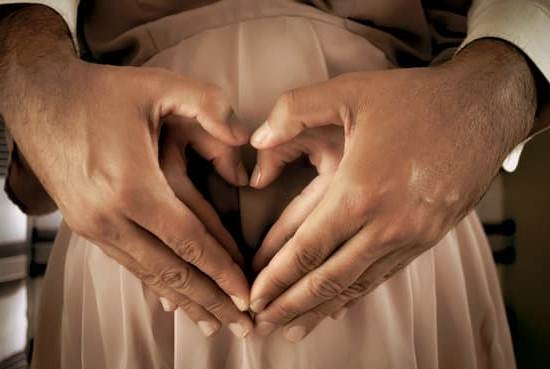Introduction
A chemical pregnancy is an early miscarriage that happens shortly after implantation. In some cases, women may still experience symptoms associated with a positive pregnancy test, such as morning sickness or breast tenderness, despite the miscarriage. Since the egg implanted in the uterus failed to thrive and grow, a chemical pregnancy is typically not detected by ultrasound.
Answer:
It is generally recommended that women wait for one to two menstrual cycles before attempting to conceive after having a chemical pregnancy. During this time, it is important for women to seek medical advice if they have any concerns about their physical or mental health. This period of rest also allows their bodies to heal and helps them prepare physically and emotionally for another potential pregnancy. After waiting the recommended amount of time, couples may start actively trying to conceive again through regular unprotected intercourse or seek assistance from fertility treatments if necessary.
What is a Chemical Pregnancy?
A chemical pregnancy is an early miscarriage that happens shortly after conception. It is usually caused by a chromosomal abnormality or other issues in the growing embryo. The embryo does not develop and is unable to attach to the uterus, so it is expelled through the woman’s menstrual cycle. While a chemical pregnancy is not as common as a normal miscarriage, it can be difficult for couples to cope with since they will experience many of the same physical and emotional symptoms as they would with a normal miscarriage.
How long after a chemical pregnancy can you try again?
Most doctors recommend waiting at least one full menstrual cycle before attempting to get pregnant again after experiencing a chemical pregnancy. This gives your body time to physiologically and psychologically recover from the trauma of losing an unborn baby, which can both physically and emotionally draining. After one full cycle has passed, you should be back on track with your fertility—though keep in mind that every individual’s timeline could vary depending on their own specific medical story. Additionally, it’s also important to speak to your doctor who might wish for you to wait longer if you have experienced more than one loss consecutively or had any underlying health issues that may need attention prior to attempting another pregnancy.
Factors That Can Contribute to a Chemical Pregnancy
Chemical pregnancies are incredibly common and most people don’t know that they have had one until later on when ultrasounds reveal that a normal pregnancy process hasn’t taken place. A chemical pregnancy is also known as an early miscarriage and happened very early in the pregnancy before the fetus can be seen on an ultrasound scan. It is estimated that about 50% of all pregnancies end in a chemical pregnancy. The main cause is usually because of chromosomal abnormalities in the embryo which prevent it from growing into a healthy baby. Therefore, when a chemical pregnancy occurs, it’s important to ensure that both partners are checked for any underlying chromosomal conditions or other health issues before trying again.
Knowing your body and how it responds to conception attempts can help increase your chances of success if you’re trying to get pregnant after a chemical pregnancy. Different factors like age, previous miscarriage rates, sperm quality, diet and lifestyle, stress levels, and overall health can contribute to a successful pregnancy or future miscarriages or chemical pregnancies. After waiting at least two menstrual cycles following a missed period due to chemical pregnancy, when those risk factors have been addressed with proper medical advice and steps have been taken to ensure the environment for conception is healthy, you can usually try again with minimal risks.
Common Symptoms of a Chemical Pregnancy
The symptoms of a chemical pregnancy vary depending on the individual and it’s often difficult to know if one has occurred without a pregnancy test. Some common signs may include light spotting, nausea, fatigue, light bleeding, and breast tenderness. The duration of these symptoms can depend on the individual and may last anywhere from a few days to several weeks.
Most experts recommend waiting at least one menstrual cycle before trying to conceive again after experiencing a chemical pregnancy. This allows time for your body to adjust hormonally and restore balance. It is important to note that many people who experience a chemical pregnancy go on to have successful pregnancies in the future. However, if you are struggling to conceive after multiple attempts it may be best to consult your healthcare provider for advice. Knowing what type of fertility treatment or assistance you may need can increase your chances of conception.
Testing to Diagnose a Chemical Pregnancy
After a chemical pregnancy, it can be difficult to determine when it’s time to try again. You should talk with your doctor about the length of time that you need to wait between pregnancies. Generally, your doctor will recommend that you wait two to three cycles before attempting another pregnancy. Waiting two or three cycles allows your body adequate time to heal and regulate hormone levels prior to conception.
Testing for a chemical pregnancy is generally done via a home pregnancy test or through a blood serum test at a clinic. Home tests are performed by placing the test stick in urine collected over 6 hours. They detect hCG (human chorionic gonadotropin) which is a hormone secreted by the placenta during pregnancy, even though the fetus never makes it past the earliest stages of development. The blood serum test is typically done after one missed period, usually around 10 days after ovulation. This test measures the same hormone but has more reliable results since it tests higher concentrations of hCG in the bloodstream. By using this method, your doctor can diagnose if there was indeed an early loss and provide guidance on when you should attempt another pregnancy if desired.
What to Expect After a Chemical Pregnancy
A chemical pregnancy is a miscarriage that happens very early in a woman’s pregnancy, often before she would’ve even realized she was pregnant. Generally, symptoms are much the same as a regular miscarriage, with signs of bleeding and cramps around the time of a missed period. Unfortunately, many women do not realize they were pregnant at all until they take a pregnancy test and get a positive result — only to experience later signs of it having not been successful.
In terms of how long after this type of miscarriage one should wait before trying again, as with all forms of miscarriage, health professionals typically recommend waiting for at least one full cycle before attempting to become pregnant again. Additionally, experts also suggest speaking to your doctor regarding any other medical issues or concerns that you may have. It is important to ensure that both mental and physical health are taken care of prior to attempting another pregnancy.
Your doctor may offer advice on the appropriate amount of time based on your medical history or any underlying conditions or risk factors you have; however, generally speaking, taking some time away from actively trying to conceive is recommended. This can be beneficial in allowing time for emotional processing, as well as enabling more detailed discussion with your doctor and/or another healthcare professional about how best to proceed if you want (and intend) to become pregnant again soon.
How Much Time to Wait Before Trying Again After a Chemical Pregnancy
It is recommended that women wait for two or three normal menstrual cycles before trying to conceive again after experiencing a chemical pregnancy. This will give your body enough time to recover from the miscarriage, restore hormone levels back to pre-pregnancy levels and prepare itself for a new potential pregnancy. It is also important to make sure you are physically and emotionally ready to try again, as the emotional toll of a chemical pregnancy can be difficult to cope with. Your doctor may further suggest waiting until they have performed some tests to determine the reason behind the chemical pregnancy. This might involve passing through an ultrasound or blood tests. If in doubt, it is always best to consult with your doctor before attempting another conception.
Potential Complications to Consider After a Chemical Pregnancy
Once a chemical pregnancy has occurred, it is important to consider potential complications before trying to conceive again. Before attempting pregnancy again, it can help to discuss your health and medical history with your doctor. They will be able to assess any risks and provide advice on when it is safe to try conceiving again. Some potential complications that may arise after a chemical pregnancy include:
• Repeated miscarriages – If you experience two or more consecutive early miscarriages, known as recurrent miscarriage, this may be a sign of underlying health or fertility issues that need investigating by a physician.
• Uterine infection – Chemical pregnancies have been linked to bacterial infections in the uterus, so if you are experiencing any discomfort or pain, it’s important to seek medical advice immediately.
• Hormonal imbalance – Hormonal imbalances can sometimes trigger a miscarriage due to changes in hormone levels during early pregnancy. Your doctor can assess whether there is an underlying hormonal issue which could cause further miscarriages.
• Embryonic issues – Miscarriage also occurs when there are structural issues in the embryo itself, such as chromosomal abnormalities that hinder development or growth. A simple blood test called a karyotype analysis can determine whether genetic issues caused the chemical pregnancy and how likely they are to occur in future pregnancies.
When to See a Doctor for Expert Advice
It’s important to see your doctor after experiencing a chemical pregnancy so they can provide advice on how long to wait before trying again. Generally, it is recommended that couples wait 1 – 3 months after a chemical pregnancy before trying to conceive again, depending on the woman’s individual situation and advice from their healthcare provider. Other factors that may affect this decision are the woman’s age, medical history, and overall health. Your doctor may also advise further tests if there could be an underlying medical condition which has caused the chemical pregnancy. In any case, speaking with a doctor and getting personalized advice is always the best approach when making decisions about fertility or other health matters.
Managing Stress and Anxiety After a Chemical Pregnancy
It is important to give your body time to recover after a chemical pregnancy. Depending on the individual, this may take anywhere from a few days to a few weeks. If you are physically feeling well enough after a week or two, then it is possible to try again. However, it is important to discuss this with your doctor before planning another attempt at getting pregnant.
In addition to physical rest and recovery, taking time for emotional healing is just as important. After experiencing a chemical pregnancy, feelings of grief and loss can be common. It is important to take part in activities that are calming and grounding such as spending time outdoors or engaging in light physical activity like yoga or stretching. Speaking with close friends or family members can also be beneficial in processing your emotions. If needed, do not hesitate to seek out professional counseling which can help you work through intense emotions that might arise after the experience of a chemical pregnancy.
Tips for Moving Forward After a Chemical Pregnancy
1. Give yourself time to grieve. After a chemical pregnancy, it is important to take the time to properly process any grief or sadness you may be feeling so that you can move through it and come out feeling hopeful about trying again.
2. Seek support from others. Talk to a trusted friend, family member or therapist about how you are feeling and any fears or questions you may have about future pregnancies. It can also be helpful to join online support groups where you can connect with others who have gone through similar experiences.
3. Take care of your body and mind before trying again. Make sure you give yourself some time and make positive lifestyle changes like eating healthily, exercising regularly and taking part in activities that help clear your mind before the next round of fertility treatments or conceiving attempts.
4. Consider enlisting the assistance of professionals for help with conception if necessary.. Consulting a fertility specialist may be beneficial when attempting another pregnancy as they will be able to provide guidance on potential treatments or medications which can increase your chances for success in conceiving a healthy baby.
Conclusion
Once you have experienced a chemical pregnancy, it is important to be aware of some of the measures you can take in order to best prepare yourself for successful implantation and a healthy full-term pregnancy the next time. Start by visiting your healthcare provider regularly, who can advise you on how best to care for yourself throughout the process. Seek advice if necessary on any supplements or lifestyle changes that may help increase your chances of conception. Establish an optimal weight range; being either underweight or overweight will impede your ability to conceive a healthy baby. Adopt a healthy diet high in vitamins, minerals and other essential nutrients; along with regular physical activity this will benefit hormonal balance and overall fertility. Avoiding smoking and drinking alcohol is also recommended as these substances can severely affect conception. Investigate other methods that may assist you in achieving conception commitments such as intrauterine insemination or IVF (In Vitro Fertilization). With the correct management planning, you should be able to conceive again soon after your chemical pregnancy, although it is important to be patient and remember everyone’s circumstances are different so don’t put too much pressure on yourself with timelines.

Welcome to my fertility blog. This is a space where I will be sharing my experiences as I navigate through the world of fertility treatments, as well as provide information and resources about fertility and pregnancy.





